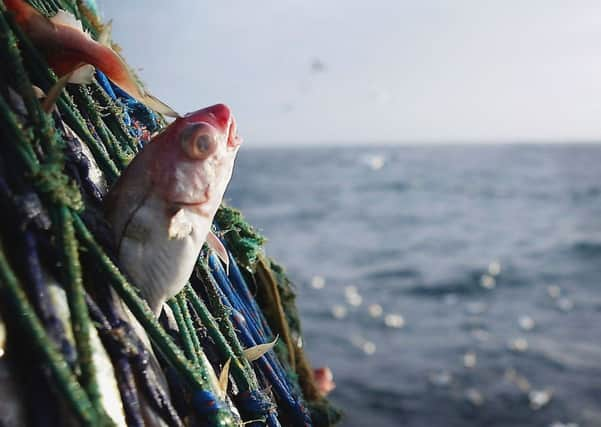How horsemeat-style scandal ‘could engulf seafood’


Experts from the Marine Conservation Society (MCS) fear consumers are being kept in the dark over the green credentials of fish products on the shelves after leading supermarkets dropped out of a sustainability survey by the charity.
This year Tesco, the biggest seafood seller in the country, turned down the offer to take part in the study, which is carried out every two years. Aldi also chose not to participate, while Asda and Lidl did not respond.
Advertisement
Hide AdAdvertisement
Hide Ad“We’re trying to provide consumers with as much information as possible about their seafood and supermarket surveys are one way we can do that,” said MCS’s Samuel Stone.
He said it was “disappointing” the country’s top seafood retailer had chosen not to get involved with the scheme, but a spokesman for Tesco defended the company’s decision not to take part, saying the MCS rating system was “overly simplistic”.
Of those that did take part, Marks & Spencer and Sainsbury’s scooped joint first place in the league table, closely followed by the Co-op and then Waitrose. Morrisons came in fourth and Iceland fifth.
Marks & Spencer fisheries manager Hannah Macintrye said: “We’re delighted to top the MCS survey for the second time. Selling seafood from the most sustainable sources available is important to us. It’s a key part of the M&S quality our customers expect and a long-term commitment we’ve made to suppliers and the seafood industry.”
Stuart Lendrum, head of sustainable and ethical sourcing at Sainsbury’s, said: “We’re proud to have been awarded the top rating. It comes as a welcome recognition of our work to support sustainable fishing and aquaculture industries.”
But despite an overall improvement in areas such as own-brand sourcing and species from the MCS “Fish to Eat” list, the charity said all the retailers could do better when it comes to traceability and labelling.
“In many cases, seafood has a longer supply chain than meat,” said Mr Stone. “We know that some fish caught in UK waters is then sent halfway across the world to be processed and then transported back here.
“What’s needed in the supply chain are the 3Ts – trust, transparency and traceability – to make sure that seafood doesn’t have its own ‘horsemeat’ scandal to deal with.”
Advertisement
Hide AdAdvertisement
Hide AdNew labelling laws introduced at the start of this month will help shoppers by listing the species, fishing method and whether the catch was farmed or wild.
MCS says if shoppers cannot see this information on their seafood products, they should choose something else.